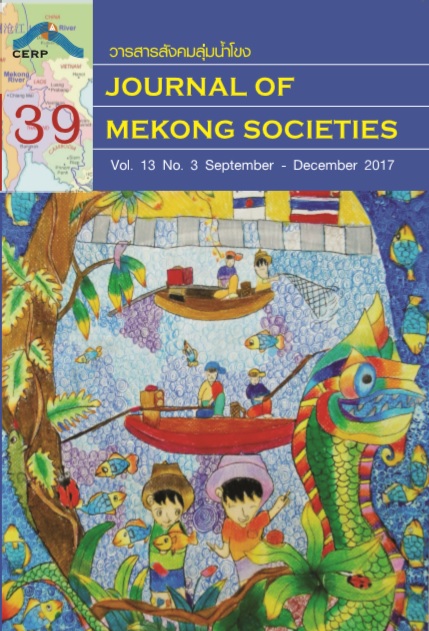Teen Mothers as Agents: Habitus, Capital and Practices in Families
Main Article Content
Abstract
Teenage mothers are often viewed as powerless people who face numerous pressures. This article views teen mothers as human agencies who struggle to overcome the many difficulties in their everyday life without surrendering to the dominating socio-cultural structure. The article focuses on teen mothers’ problems and their practices in their families. Twenty-one teen mothers living in Khon Kaen province participated in this study. The data were collected by recording the participants’ life histories and by in-depth interviews and observation. The data were then analyzed under Pierre Bourdieu’s theory of practice. Qualitative research methodology was employed in the study. Content analysis was used to analyze the data. The findings show that these teen mothers faced unacceptance and bias from their natal family and from their boyfriend’s family, as well as unemployment, lack of income, and quarrels. Under such circumstances, however, the teen mothers did not surrender; rather they maneuvered situations and negotiated solutions to the problems they encountered. Practices of these teen mothers drew on their habitus, cultural capital and symbolic capital. The use of cultural capital, including medical principles, religious principles, and diligence; habitus, such as patience and optimism; and symbolic capital, such as “the child,” and “motherhood,” in their negotiations and practices, reveals that these young women did not totally capitulate. This paper thus argues that under limited resources, teen mothers were able to negotiate with other family members for their social position and to transform their status from that of victim to that of agency


